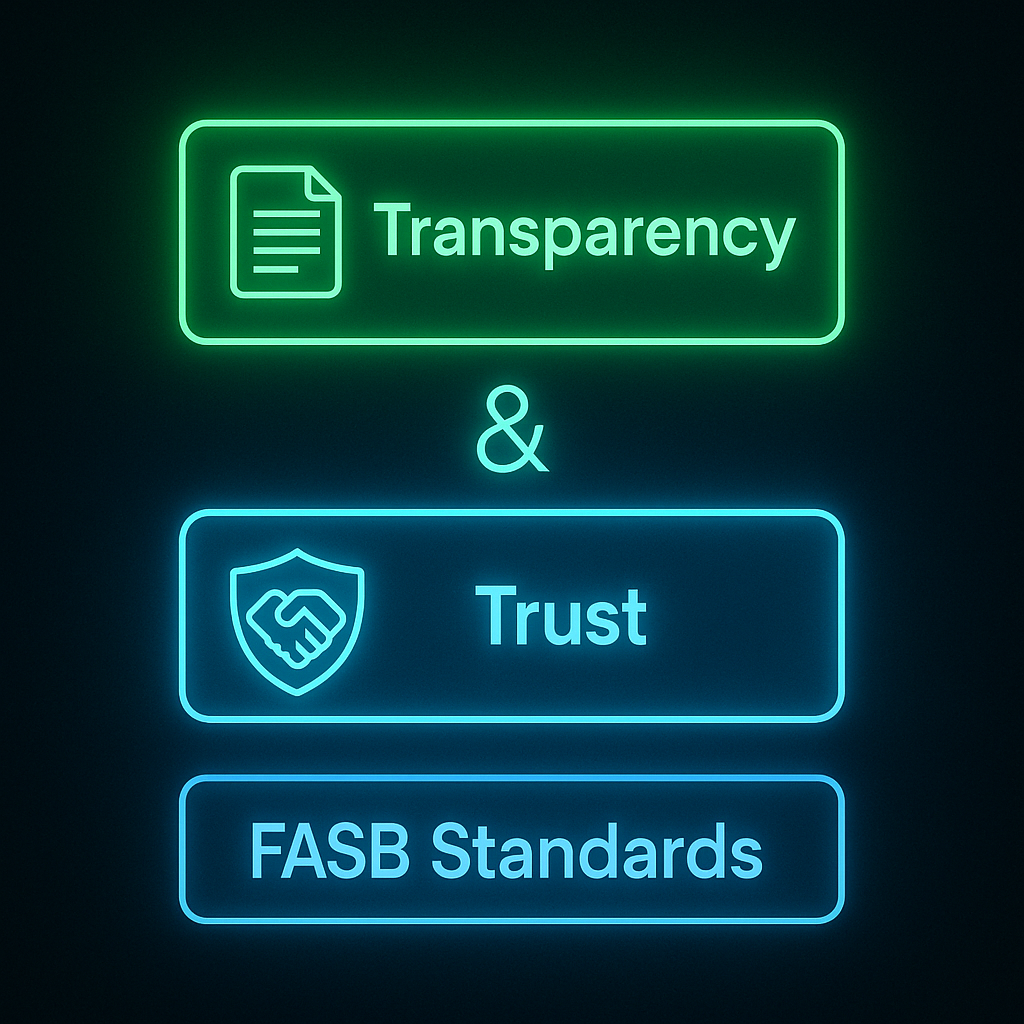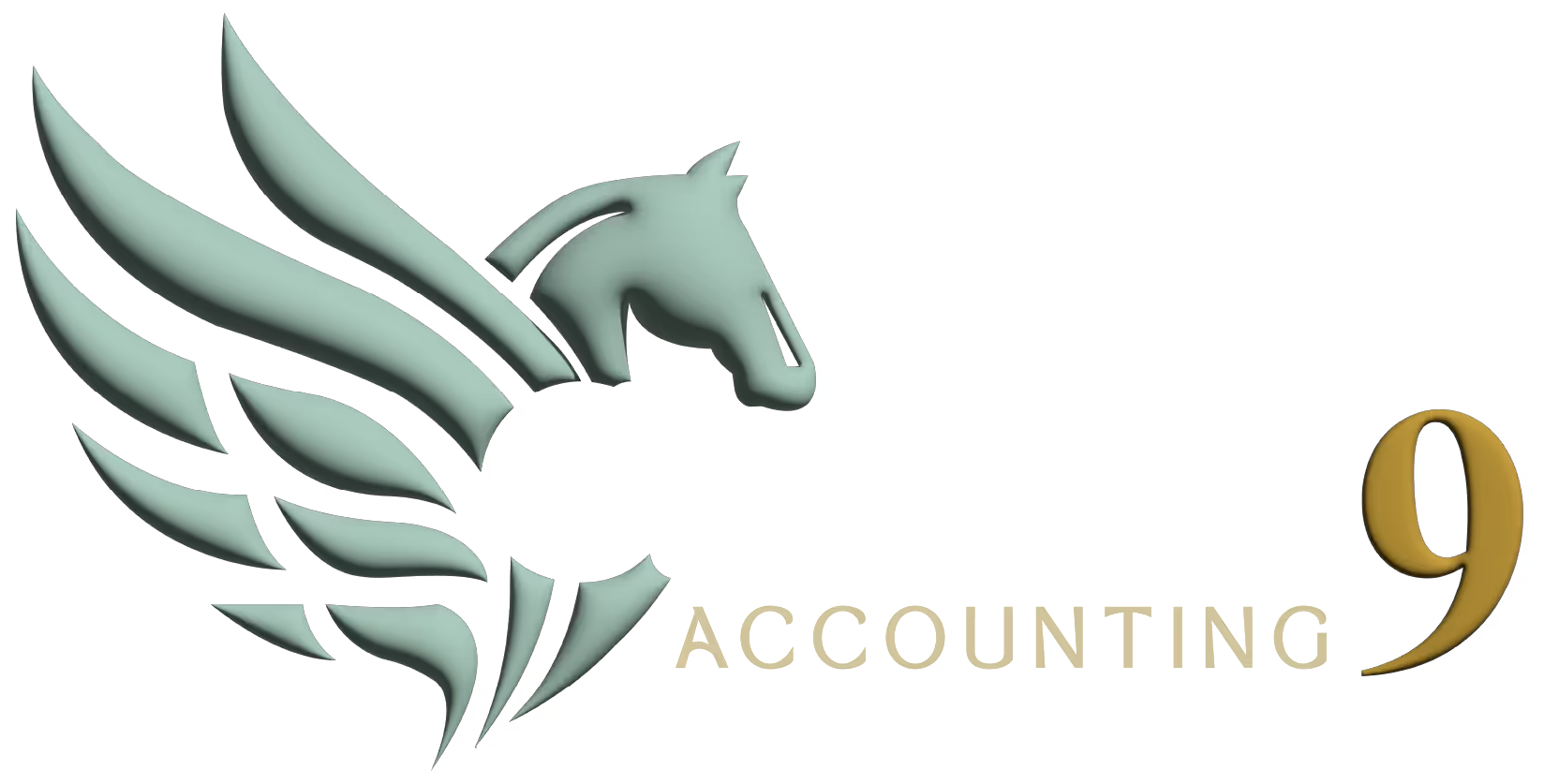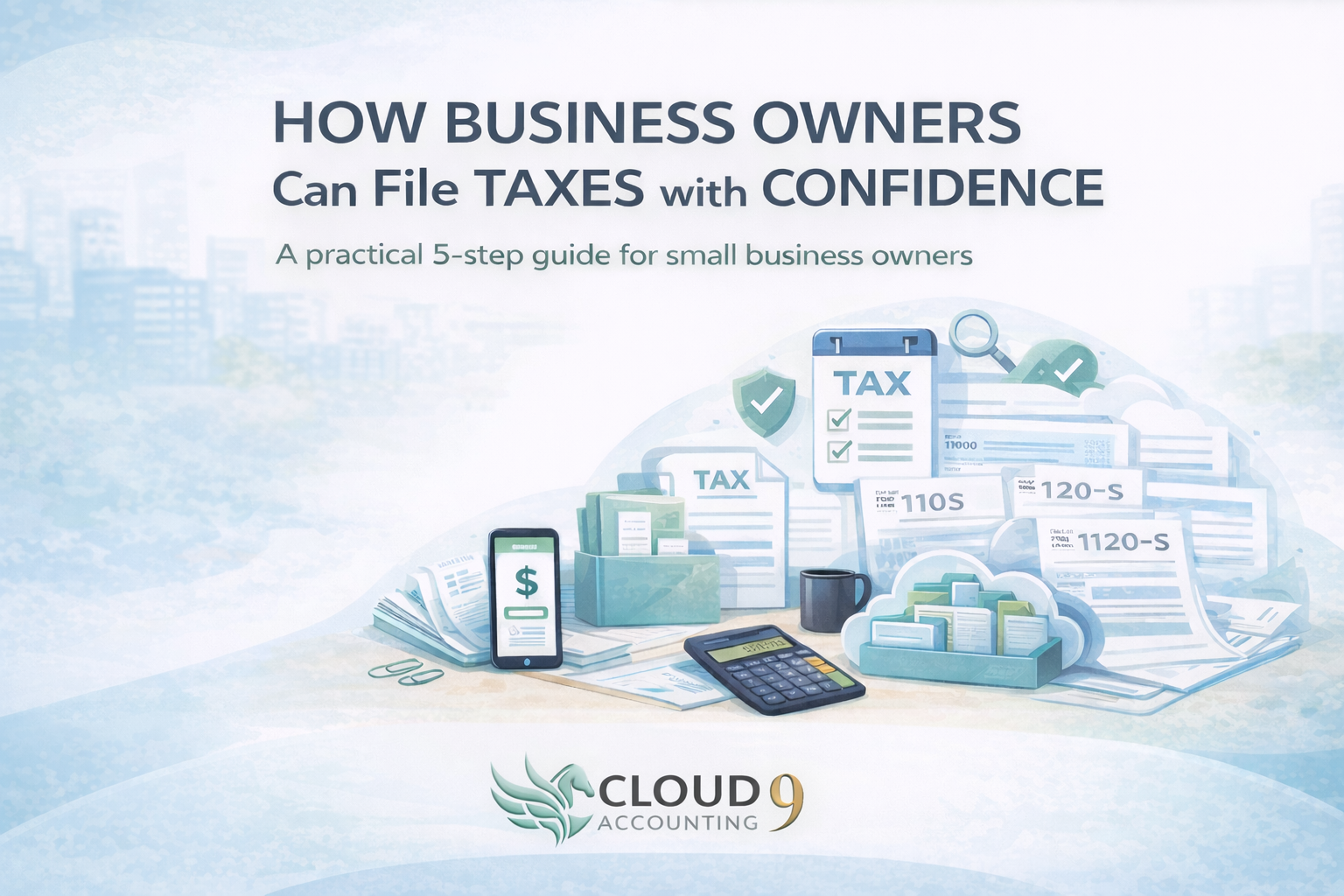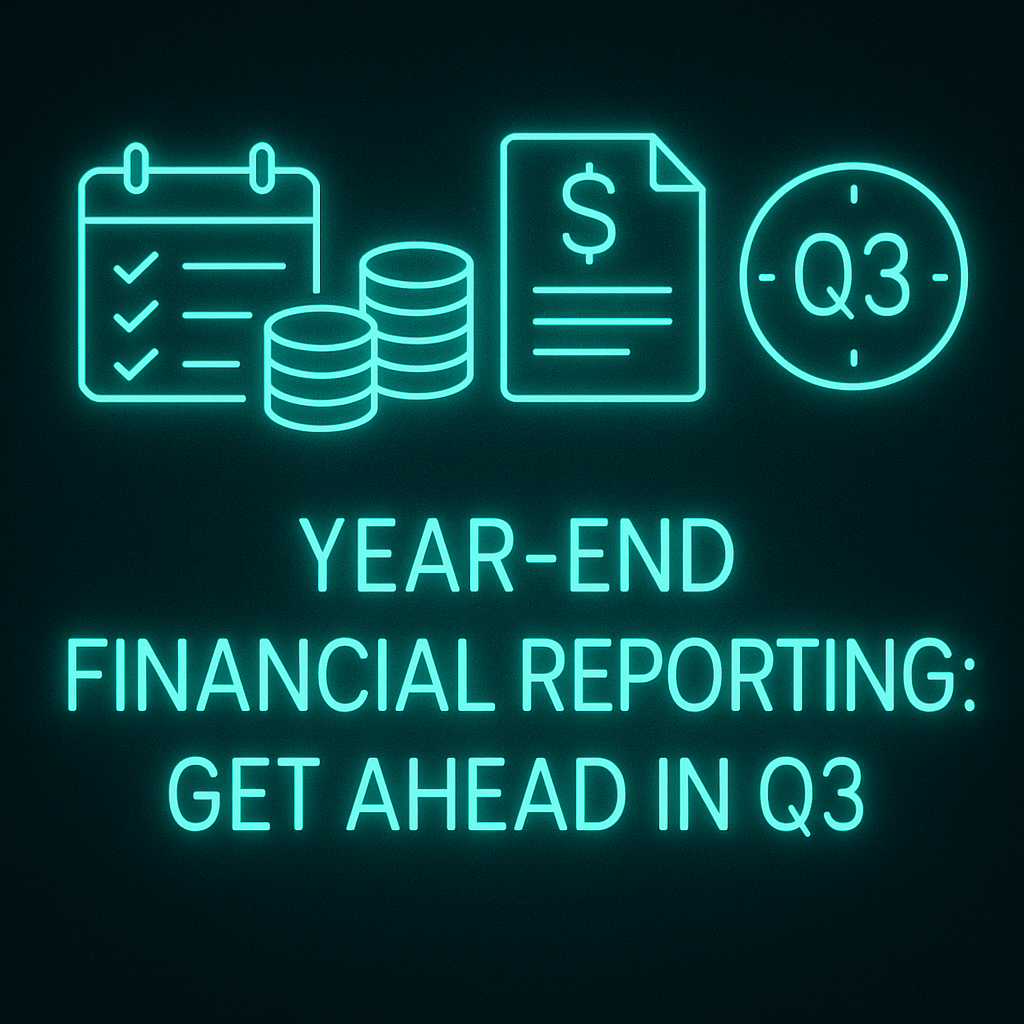Building Trust and Legitimacy: How Accounting Practices—and FASB Standards—Strengthen Your Organization
For nonprofits and small businesses, transparent financial practices are the foundation for credibility, strong relationships, and long-term success.

Building Trust and Legitimacy: How Accounting Practices—and FASB Standards—Strengthen Your Organization
When you think of accounting, you might picture spreadsheets and receipts—but great accounting is really about building trust. For nonprofits and small businesses, transparent financial practices are the foundation for credibility, strong relationships, and long-term success.
Whether you’re working with donors, board members, clients, or your own team, showing that you manage money responsibly is essential. One of the best ways to do this is by following established accounting standards, such as those set by the Financial Accounting Standards Board (FASB). Here’s how sound accounting practices and FASB compliance can enhance transparency, legitimacy, and stakeholder trust—and some practical steps to get you there.
Why Transparency and Trust Matter
Imagine supporting a cause or business without knowing how your contribution is used. Most people want to see that their investment is making a difference. When your organization is open about its finances and follows recognized standards, you give stakeholders confidence and peace of mind.
How Accounting Practices and FASB Standards Build Legitimacy
1. Accurate, Timely Financial Reporting
Providing regular, reliable financial statements—like income statements and balance sheets—demonstrates that your organization is accountable and proactive. When these reports are prepared in accordance with FASB standards, they’re not just accurate—they’re also consistent and comparable with other organizations, making it easier for stakeholders to understand your financial position.
2. Organized Recordkeeping
Maintaining clear records of transactions, receipts, and supporting documents makes it easy to answer questions, pass audits, and show you’re on top of your finances. FASB guidelines help ensure that your recordkeeping methods are thorough and standardized.
3. Compliance with FASB and Legal Requirements
Adhering to FASB standards and legal requirements isn’t just about compliance—it’s about showing your organization operates with integrity and professionalism. For nonprofits, FASB’s guidance on revenue recognition, expense classification, and financial statement presentation is especially important for demonstrating transparency to donors and regulators.
4. Open Communication
Sharing financial information—through annual reports, updates, or summaries—shows you value transparency. When your reports follow FASB standards, stakeholders know they can trust the information you provide.
Practical Ways to Enhance Transparency and Trust
1. Establish Internal Controls
- Divide financial responsibilities among team members.
- Require approvals for significant expenses.
- Conduct periodic internal reviews to catch errors early.
2. Leverage Technology
- Use cloud-based accounting software for real-time access and easy sharing.
- Provide dashboards or reports to your board and leadership team.
3. Share Financial Results
- Publish annual reports or financial summaries on your website.
- Include clear explanations of your financial results and achievements, noting your adherence to FASB standards.
4. Seek Independent Reviews
- Engage an external accountant or auditor annually to review your FASB-compliant financials.
- Share their findings with your board and, when appropriate, your community.
5. Foster a Culture of Accountability
- Encourage open conversations about finances within your organization.
- Make it easy for team members to ask questions or raise concerns.
Conclusion
The Bottom Line
Transparent accounting practices do more than keep your books in order—they build trust, enhance your reputation, and help your organization thrive. By following FASB standards, you ensure your financial reporting is clear, consistent, and credible. When stakeholders see that you’re responsible and open with your finances, they’re more likely to support your mission and vision.
Ready to Strengthen Your Financial Practices?
If you’d like expert guidance on making your accounting more transparent, effective, and FASB-compliant, Cloud 9 Accounting is here to help. Let’s work together to build a foundation of trust and success for your organization.
Lastest blog posts
Contact us
Discover how we can simplify your bookkeeping, streamline your accounting, and help you make smarter financial decisions. Reach out today! We’re here to help you save time, reduce stress, and grow your business.





